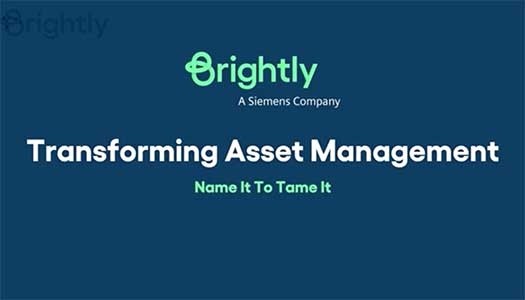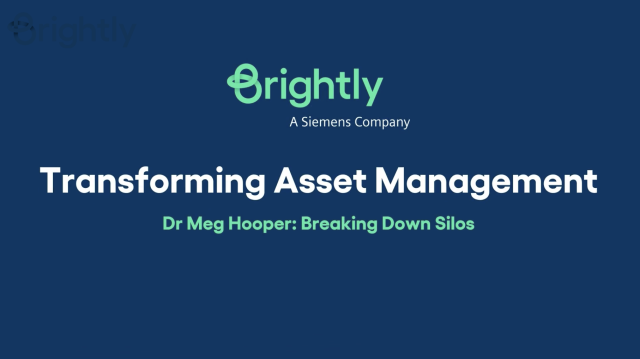Choosing an ESG Reporting Framework for Your Organization
Selecting an environmental, social, and governance (ESG) reporting framework for your organization can be a daunting task. There are so many frameworks and disclosures to consider, and since ESG reporting requirements vary based on the market ( in many cases still voluntary to begin with), it can be confusing and overwhelming.
Corporate reporting can be viewed upon with distrust and suspicion. ESG data transparency will make a difference whether you're a publicly traded company, privately owned, or a non-profit.
By understanding the variables at work, your options, and how they can affect your company’s bottom line, you can decide which guidance works best for your organization and how to best manage them to ensure your organization is impacting your community in the right ways.
What is an ESG reporting framework?
ESG guidelines are the principles, standards, and frameworks that help organizations integrate sustainability and ethical practices into their business operations. Organizations use ESG frameworks to manage ESG risks and opportunities to identify and assess the impact of their business activities on the environment, society, and governance, and develop strategies to address these impacts.
Corporate sustainability report
Corporate sustainability refers to the integration of ESG principles into an organization's business strategy and operations. Corporate sustainability aims to create long-term value for stakeholders while minimizing negative environmental and social impacts.
A sustainability report provides information on an organization's ESG performance. Sustainability reports typically include information on the organization's environmental, social, and governance practices, as well as its progress toward sustainability goals.
Standard
ESG reporting standards are specific, replicable, detailed requirements organizations use to report on ESG performance. Standards provide a common language and format for ESG reporting and ensure information is consistent, transparent, and comparable.
Framework
An ESG reporting framework is a set of principles and guidance organizations use to structure their ESG reporting. This helps organizations ensure they’re providing comprehensive, transparent, comparable reporting practices across companies and industries.
Certification
ESG certification helps organizations demonstrate a commitment to sustainability and ethical practices. Third-party organizations like B Corp or the Forest Stewardship Council can grant certifications, providing independent verification of an organization's ESG performance.
Target Setting
Target setting allows organizations to establish goals and measures to track their progress toward sustainability and responsible business practices. Multiple organizations work together to set formal targets as a pledge to work toward similar climate goals, creating short- and long-term benchmarks as a show of solidarity.
Legislation and Regulations
Policies formulated specifically to tackle climate change that can be local, national, or international in scope. ESG legislation and regulations impose compliance and reporting requirements, creating reputation risks, providing competitive advantages for compliant organizations, and exposing non-compliant organizations to legal and financial risks. To mitigate these risks, organizations should know all ESG laws and regulations they’re subject to and work to comply as they develop sustainable and responsible business practices.
Why is ESG reporting important?
ESG reporting helps organizations demonstrate their commitment to sustainability and responsible business practices. Reporting shows transparency, increases accountability, builds customer confidence, provides access to capital, and manages risks. This gives stakeholders reliable information on the organization's environmental, social, and governance practices, which can help them to make informed decisions and hold organizations accountable for their impact on the environment and society.
Show Transparency
Providing transparent and reliable information on their environmental, social, and governance practices to their stakeholders is an important part of building trust with stakeholders, including employees, management, board members, and members of the surrounding community. This information helps them assess the organization's impact on the environment and society and to make informed decisions.
Sustainability and reporting software helps organizations gather data they can report to stakeholders, maintaining transparency and creating a snapshot of their environmental impact.
Increased Accountability
In business, accountability is a measure of trust. By disclosing their ESG performance, organizations show they’re willing to be accountable for their actions and policies for their impact on the environment and society.
Build Customer Confidence
Customers are increasingly aware of the impact of their purchases on the environment and society, and they want to support organizations that share their values. ESG data reporting helps organizations demonstrate their commitment to sustainability and responsible business practices, and build customer loyalty and trust.
Access to Capital
Investors want to know organizations they’re supporting demonstrate a commitment to sustainability and responsible business practices. ESG reporting can provide investors with information on the organization's ESG performance and help them to make informed investment decisions.
Risk management
ESG reporting can also help organizations to manage risks. By disclosing their ESG performance, organizations can identify areas of risk and take measures to mitigate them. This can help organizations improve risk management in areas like reputational damage, regulatory fines, and supply chain disruptions.
ESG frameworks explained
These ESG frameworks help companies guide sustainability reporting and disclosures, providing metrics and guidelines for measuring and reporting on sustainability performance. This helps organizations improve sustainability practices as well as their performance.
GRI
Global Reporting Initiative (GRI) Standards are widely used to provide guidance on how to report on ESG issues such as climate change, human rights, and supply chain management. They are commonly used to disclose both positive and negative aspects an organization has on the environment, economy, and its surrounding community.
GRESB
Global Real Estate Sustainability Benchmark (GRESB) assesses and benchmarks the sustainability performance of real estate portfolios. GRESB provides standardized metrics for measuring and reporting on sustainability performance and is used by real estate investors and asset managers to assess and improve sustainability performance.
TCFD
Developed by the Financial Stability Board, TCFD provides recommendations for companies to disclose information on their climate-related risks and opportunities. The framework is designed to help companies and investors assess climate-related risks and opportunities to facilitate better decision making.
CDP
A non-profit organization that runs a global disclosure system for companies to report their environmental impacts, CDP provides a standardized reporting platform and benchmarks for companies to measure and report on their environmental performance.
GHG
The Greenhouse Gas (GHG) Protocol works with governments, industry associations, NGOs, businesses, and other organizations to establish comprehensive global standardized frameworks to measure and manage greenhouse gas emissions.
IPCC
The Intergovernmental Panel on Climate Change (IPCC) is a scientific body established by the United Nations to provide policymakers with scientific information on climate change. The IPCC's reports provide a comprehensive overview of the current state of knowledge on climate change and its impacts and are used as a basis for international climate policy.
For more information on the popular frameworks companies follow, read our article "6 emission reporting frameworks & certifications companies should know about".
Factors to Consider When Choosing an ESG Reporting Framework for Your Organization
Which Disclosures Are Required by Law?
Jurisdictions may have different ESG reporting requirements, and organizations should ensure that they comply with all relevant regulations. Some countries may require companies to report on their carbon emissions, while others may require disclosures on labor practices or social impact. You should learn which emissions reporting mandates your company will need to adhere to while deciding which framework to use.
Corporate Strategies
Organizational priorities and strategies are certainly germane to your ESG reporting framework. If, for example, you’re looking to reduce carbon emissions, you may choose a GHG Protocol framework, which provides guidance on measuring and reporting emissions. If your target is improving diversity and inclusion practices, the GRI Standards, and its guidance on reporting on those practices, may be the choice for you. Keeping strategies aligned is a recipe for success.
Framework Alignment
Consider the principles, objectives, and guidelines of each framework and evaluate whether they align with your own ESG goals and strategies. Ensuring the framework is compatible with your internal reporting processes and systems can help make the transition to the framework a bit smoother and make success more likely.
Industry Trends
Industry trends and best practices ESG reporting framework. Some frameworks are more widely used and recognized in certain industries, and organizations may benefit from selecting a framework that is widely adopted by their peers. Additionally, organizations should keep abreast of emerging ESG trends and issues and select a framework that can accommodate these trends and issues.



